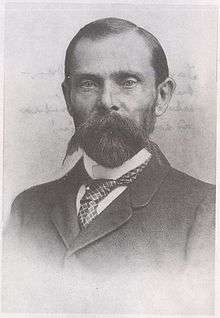Belarusian literature
Belarusian literature (Belarusian: Беларуская лiтаратура, romanized: Biełaruskaja litaratura) is the writing produced, both prose and poetry, by speakers (not necessarily native speakers) of the Belarusian language.
History
Pre-17th century
Belarusian literature was formed from the common basis of Kievan Rus' literary tradition, which also gave rise to Ukrainian literature and Russian literature. A separate literary tradition of Belarus became apparent only in the 14th-15th centuries. The old Belarusian literature experienced its golden age in the 16th-17th centuries, when the Old Belarusian language was the official language of the Great Duchy of Lithuania. The Statutes of the Great Duchy of 1529, 1566 and 1588, as well as polemic religious literature were all published in Old Belarusian language. Since the early 16th century Belarusian literary works have been printed. The first printed Belarusian book (in the version of Old Belarusian) was Psaltyr, which was printed in Prague by Francysk Skaryna in 1517 (this was the first book to be printed in an East Slavonic language). During the 16th and 17th century poetry and drama (see Simeon Polatsky) appeared in Belarusian literature under the influence of a more developed Polish literature.
18th and 19th centuries

Due to the cultural dominance of the Polish language within the Polish–Lithuanian Commonwealth and the Russian language within the Russian Empire, Belarusian language was used only occasionally in the 18th century literature, most notably by the dramatists Kajetan Moraszewski and Michal Ciecierski, who mixed Polish-speaking and Belarusian-speaking characters in their comedies. The literary renaissance began in the 19th century. Anonymous burlesque poems Inside-out Aeneid (1820s) and Taras on Parnassus (ca. 1855) appeared in circulation and were eventually published. Several works were contributed by local-born authors who also wrote in Polish (Jan Barszczewski, Jan Czeczot, Vintsent Dunin-Martsinkyevich, Andrej Rypinski). The second half of the 19th century saw the rise of Realism (Francišak Bahuševič, Adam Hurynovič, Janka Lučyna). In the last quarter of the century multiple publications of Belarusian folklore appeared, notably the multi-volume collection by Evdokim Romanov. In this period, both Belarusian Latin alphabet and Cyrillic alphabet were actively used.
Early 20th century
A new period started after the 1905 Russian Revolution, when the first Belarusian-language newspapers were established in Vilnius (Nasa Dolia and Nasha Niva). They brought together a circle of writers, who were arguing for developing the Belarusian language and its literature (including Yanka Kupala, Maksim Bahdanovich, Zmitrok Biadulia, Maksim Harecki, Yakub Kolas). The Belarusian literature of the time combined elements of Romanticism, Realism and Modernism.
World War I
During World War I and the proclamation of the Belarusian People's Republic (1918), the key themes within the Belarusian literature were patriotism and common life.
Interwar period
After the establishment of the Byelorussian Soviet Socialist Republic (BSSR) in 1919, literary life in Belarus was concentrated around the magazines Maladnjak (1923-1928) and Uzvyshsha (1926-1931), which were published by a group of Belarusin writers. Besides the authors from the previous periods (Zmitrok Biadulia, Yakub Kolas), this was a period of active work of poets Mihkal Charot, Uladzimer Dubouka, Adam Dudar, and writers Maksim Harecki, Tsishka Hartny and Kuz'ma Chorny.
Outside of Belarus, Belarusian literature developed as well - in Vilnius, Kaunas, Prague (Mikhal Mashara, Kazimir Svajak). In 1934, the Union of Writers of BSSR was established in Minsk. The tradition of socialist realism appeared in the 1930s.
Post-war period
After the end of the World War II, the key themes for the new Belarusian literature were war time experiences, the life of Belarusians in the Soviet Union and national history (in particular, novels by Ivan Melezh and Ivan Shamiakin). Since the 1960s a new theme of morality appeared in the Belarusian prose. Many writers have been fighting for freedom of speech for the authors (in particular, Vasil Bykau and Uladzimer Karatkevich).
There are several Belarusian authors who have left Belarus and now work in emigration (for instance, Natallya Arsenneva and Ales' Salavej)..
Leading literary magazines of Belarus are Litaratura i mastatstva (since 1932) and Polymia (since 1922).
In 2015 Belarusian investigative journalist and prose writer Svetlana Alexievich was awarded the 2015 Nobel Prize in Literature "for her polyphonic writings, a monument to suffering and courage in our time".[1][2]
Famous Belarusian writers
Inter-war period
- Mikhas' Charot
- Kuz'ma Chorny
- Yakub Kolas
- Yanka Kupala
- Francisak Umestouski
After-war years
Contemporary writers
- Svetlana Alexievich
- Alhierd Baharevich
- Raisa Baravikova
- Adam Hlobus
- Ryhor Marchuk
- Eduard Skobeleu
Belarusian and Polish writers
16th century
- Symon Budny
- Andrej Rymsza
19th century
References
- Blissett, Chelly. "Author Svetlana Aleksievich nominated for 2014 Nobel Prize Archived 2015-01-07 at the Wayback Machine". Yekaterinburg News. January 28, 2014. Retrieved January 28, 2014.
- Treijs, Erica (8 October 2015). "Nobelpriset i litteratur till Svetlana Aleksijevitj" [Nobel Prize in literature to Svetlana Aleksijevitj]. www.svd.se. Svenska Dagbladet. Retrieved 8 October 2015.
Svetlana Alexievich wins Nobel Literature prize, BBC News (8 October 2015)
.svg.png)